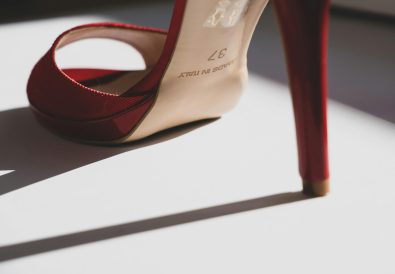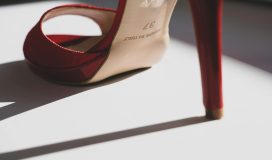
Well-fitting running shoes are vital if you intend to take part in the activity without getting injured over time. The correct fit will keep you safe from a multitude of issues, from injuries such as blisters and chafing, to misalignment, pinching and even joint injuries, due to inadequate cushioning. The one purpose of running shoes is to protect you from multiple impacts, so knowing what you are buying is equivalent to ensuring that the correct tires are fitted onto your car. So what makes a running shoe “right”?
Size matters
Although you might be surprised to learn this, your shoe size might not be what you have believed it to be for most of your adult life! Other than inevitable physiological changes as time progresses, many things might happen to your feet to cause them to grow larger!
When you run, your feet swell naturally. As they flatten with the impact of each footfall, they also become longer, and the shoes you choose will need to have the capacity to accommodate this. If you have high arches, they might pull even higher over time, and you could find yourself going down in foot (and shoe) size because of this. Your foot shape can change due to injuries or mechanical manipulation, like wearing heels or pointy shoes all the time.
These are all factors that could alter your foot’s size and shape, so it can be a good idea to remeasure your feet at intervals, to ensure that the size you are catering to is still the right size for you! There are many ways to measure your feet, from drawing the outline on a piece of paper, to making a print of your soles using ink or paint. Any of the Asics stores in AU will also be able to help you to determine your actual shoe size if you don’t feel like doing it yourself.
What do I do once I know the size I need?
It is good practice to buy running shoes half a size up from your actual size, to accommodate any changes you may undergo while running. If you run in shoes that are a perfect fit while you are standing still, you may risk them pinching when your feet undergo the expansion.
Your heel is also vitally important – the heel of running shoes should be a slightly tighter fit than that of regular shoes, to prevent chafing and the development of blisters due to excessive side to side motion.
Other factors that will affect the fit of the shoe, that you may not have considered, are socks and speed. When you try on running shoes in the store, it is a very good suggestion to bring along the type of socks you intend to be wearing when you run. Because socks affect how tightly the shoe fits, it doesn’t make sense to try on shoes without socks, or with very thin socks, if you normally run in thicker socks.
Secondly, how fast you run will also affect your choice of shoes. Those who do speed work will benefit from a more snug-fitting shoe, as the reduced motion will be of great benefit to you, as your feet will be striking the ground harder, due to the speed at which you’ll be travelling. Longer and slower runs will benefit from the general rule of thumb of a slightly longer shoe to accommodate any lengthening.
Is online or in-store shopping better?
While there are several significant benefits to shopping online, don’t know the idea of going into a physical shop either. While the online selection might be easier to browse through, nothing beats the hands-on experience of trained professionals who can assist you with shoes to meet your needs. A visit to any of the Asics stores in Australia is a testament to this! Their staff are trained to assist you with any technical enquiries you may have, and they will help you to assess your feet and running style to get the best shoes for what you need.
Shoe construction – unavoidably important
When determining the correct fit, don’t ignore the width of your foot as an influencing factor. A long foot doesn’t mean a wide foot, and often, people need a bit of advice to find a pair of shoes that will allow them to run without injury.
A runner’s weight will also determine their shoe choice, as someone with a heavier build might benefit from a shoe that offers more support. The shoe’s weight also plays a role, as lighter shoes might provide greater running comfort, but often lighter shoes do not offer as much support as specialized shoes.









